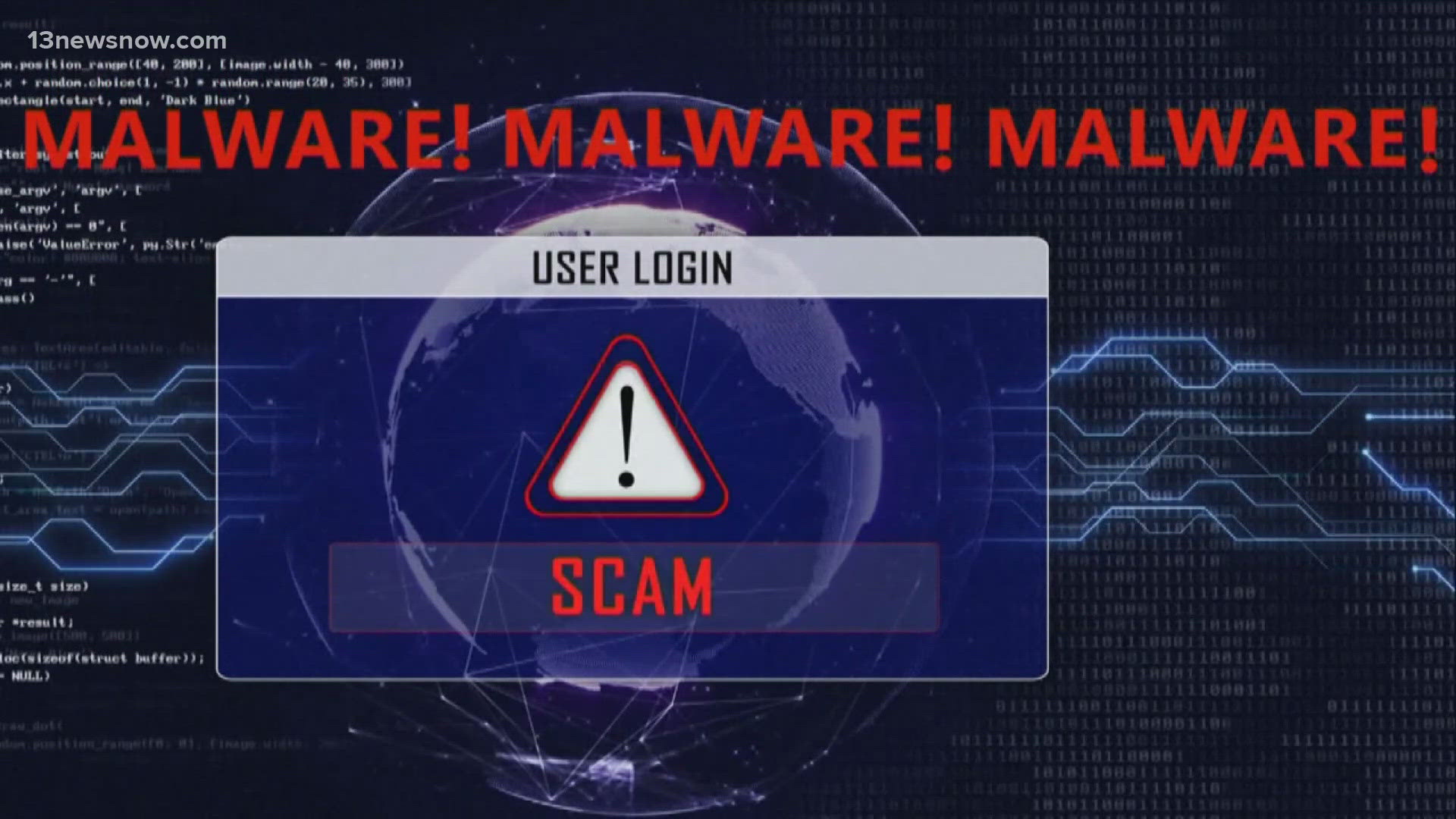NORFOLK, Va. — With the click of a button, smartphones, laptops, and other digital devices can connect people to the web instantly. But not everyone has the same level of protection when they log on.
"The internet touches everything we do now, so... how do we get accessibility to that and make sure that it's done safely?" asked John Costanzo, chief administrative officer for the Coastal Virginia Center for Cyber Innovation.
Housed at Old Dominion University, the center focuses much of its research on the maritime defense, and transportation industries. Its programs include an Innovate Cyber Challenge for university students to address cyber hygiene, a Cybersecurity Internship Clinic where students assess cybersecurity risks for micro-to-small businesses and an undergraduate research program.
ODU leads the Coastal Virginia node of the Commonwealth Cyber Initiative (CCI), a statewide network for research, workforce development and innovation in cybersecurity. The Northern Virginia node is led by George Mason University, the Central Virginia node is led by Virginia Commonwealth University, and the Southwest Virginia node is led by Virginia Tech. The initiative started in 2019 and receives about $17.5 million in state funding annually.
"We want to make Virginia the premium place to come for cybersecurity," Costanzo said. "The idea is to grow the economy of Virginia with cybersecurity and with CCI as the catalyst to do that."
CCI is made up of industry organizations, about 375 researchers, and 41 higher education institutions. In addition to ODU, education partners in Hampton Roads include Christopher Newport University, William & Mary, ECPI, Norfolk State University, Paul D. Camp Community College, Regent University, Tidewater Community College and Virginia Peninsula Community College.
The initiative recently funded 11 projects at universities across Virginia that aim to tackle inequities in cybersecurity, from racial and gender bias in artificial intelligence to online scams targeting seniors and people with disabilities. The center notified selected projects on May 1 and awarded grants through its Addressing Inclusion and Accessibility in Cybersecurity program.
"CCI has a[n] Inclusion and Diversity Committee, which actually is where this project came from," Costanzo said. "We wanted to bring [cybersecurity] down, to... make it available to everybody and [bring] it to a level where everybody can understand it."
Three of the 11 projects are happening at universities in Hampton Roads.
Researchers at William & Mary are working to develop password technology for people with mobility issues through a project called Brain-Computer Interface for Password Input: Enhancing Accessibility for Individuals with Mobility Impairments.
At Old Dominion University, the Tackling Dark Pattern-Induced Online Deception of People with Visual Disabilities project aims to provide better protection on the web for blind and low-vision users.
Another project at ODU aims to up security online for Virginians who struggle with reading and writing. Dr. Mary Still, an assistant professor in psychology at the university, is the lead investigator of the Bridging the Communication Gap in Cyber Hygiene Material project.
"We are building on research that we've already begun in the lab, so we view it as a continuation of our efforts to help better serve the commonwealth," Dr. Still said. "When CCI had this call [for proposals] come out, we were like, we know a group of individuals who are going to be further disadvantaged with the way materials are currently represented to individuals in the community. So, specifically, some of the things that we're looking to do are to develop some guidelines that will help designers and instructors present information in a way that is accessible to lower literacy individuals."
Dr. Still said that making materials and information online more accessible for this group is a change that could impact the entire population. Costanzo agreed, saying that bridging the digital divide for vulnerable groups can lead to a safer virtual space for everyone.
"Everybody needs to be aware of how to protect themselves and, particularly, how to protect their businesses," Costanzo said. "And the easier we can make that, the better off the community will be in making sure that they don't have those attacks occur against them."
Each project received up to $50,000 in funding from CCI's accessibility and inclusion program. All research is expected to be complete by May 31, 2025.
RELATED:

